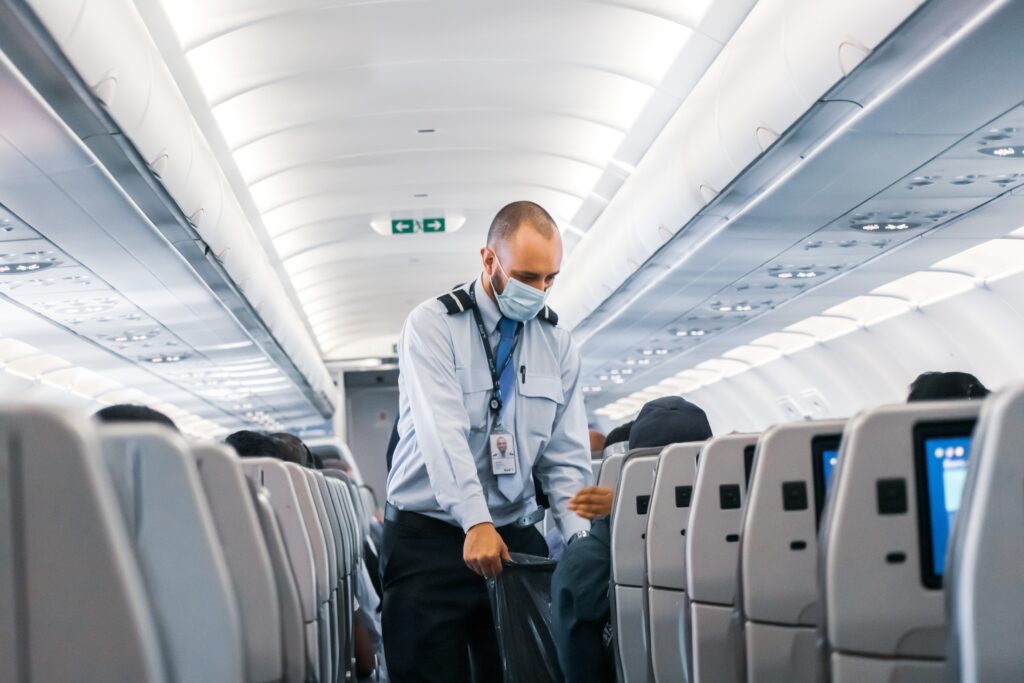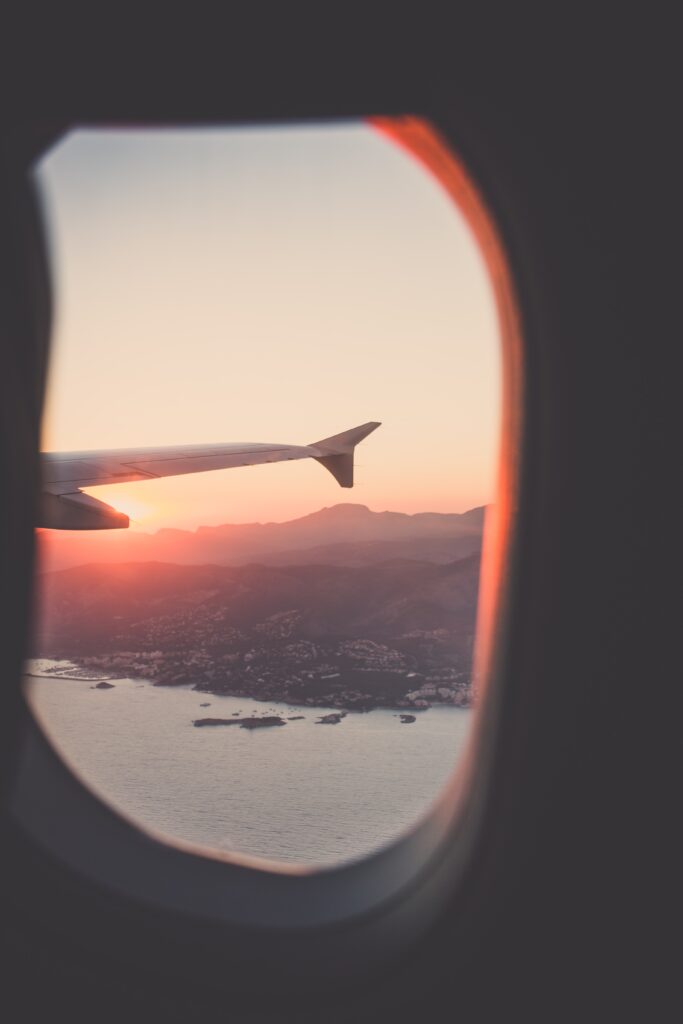In “The Impact of COVID-19 on Travel: Where Can Travelers Go and What Are the Requirements?,” the article delves into the current state of travel amidst the ongoing pandemic. It highlights the emergence of the “revenge travel” trend, whereby individuals are eager to make up for lost time by embarking on trips and indulging in experiences, following months of quarantine and canceled plans. The piece also emphasizes the varying travel restrictions and requirements, which are influenced by factors like vaccination status, age, and destination. While many countries have opened their doors to American travelers, it is crucial to note the specific prerequisites, such as full vaccination status. Furthermore, the article stresses the significance of adhering to safety measures like frequent sanitization, mask-wearing, social distancing, and compliance with local health recommendations. In addition to offering links to resources providing specific travel information, the article provides valuable tips for booking and rescheduling trips.

The Trend of Revenge Travel
Definition and Explanation
The term “revenge travel” has gained popularity in recent times as people express a deep desire to make up for the lost opportunities and experiences during the pandemic. Revenge travel refers to the idea of taking extravagant trips, spending money on luxurious accommodations, and immersing oneself in thrilling adventures to make up for the months of limited movement and canceled plans. It has become a way for individuals to seek solace and find joy in exploring the world once again. This trend emphasizes the eagerness that people have to make the most of their time and resources when it comes to traveling.
Exploring the Concept
The concept of revenge travel stems from the pent-up demand for exploration and adventure. During the peak of the pandemic, travel was heavily restricted, and many individuals were forced to cancel their long-awaited trips. This led to a buildup of frustration and the desire to compensate for missed opportunities once the situation improved. Revenge travel embodies the mindset of individuals who are determined to seize the moment, embrace new experiences, and make up for lost time. It also signifies the resilience of the human spirit and the ability to adapt and find joy even in challenging circumstances.
Why It Has Become Popular
Revenge travel has gained immense popularity due to several reasons. Firstly, after being confined to their homes for extended periods, people have developed a deeper appreciation for the freedom that travel brings. The longing to explore new places, indulge in unique cultures, and create memorable experiences has intensified. Secondly, the successful development and distribution of COVID-19 vaccines have provided a glimmer of hope and a sense of security, making people more confident in venturing out. The availability of vaccines has also opened doors to destinations that were previously off-limits due to travel restrictions. Lastly, the desire for revenge travel is fueled by the notion that life is short and unpredictable. People want to make the most of their time and live in the present, embracing opportunities for joy and adventure.
Overview of Travel Restrictions
Factors Affecting Travel Restrictions
Travel restrictions vary across different countries and regions and are influenced by various factors. One of the key factors is the vaccination status of travelers. Many countries have implemented policies that require individuals to be fully vaccinated against COVID-19 before entry. This requirement aims to minimize the risk of transmission and ensure the safety of both travelers and local populations. Another factor that affects travel restrictions is the age of the traveler. Certain destinations may have specific age restrictions in place to protect vulnerable populations, such as elderly individuals or children who may be more susceptible to severe illness. Additionally, travel restrictions are influenced by destination-specific circumstances, such as the prevalence of COVID-19 cases, the healthcare capacity of the region, and the ability to enforce public health measures effectively.
Vaccination Status Requirements
As the world strives to combat the COVID-19 pandemic, vaccination has emerged as a critical tool for curbing the spread of the virus and reopening international borders. Many countries now require travelers to provide proof of full vaccination as a condition for entry. This requirement is meant to ensure that individuals have a reduced risk of contracting or spreading the virus during their travels. Travelers may be asked to present their vaccination certificates or provide evidence of immunization through digital health passports or similar systems. It is crucial for individuals to stay updated on the specific vaccination status requirements of their intended destinations to avoid any complications during their travel planning.
Age Restrictions
In addition to vaccination status requirements, age restrictions may also impact travel plans. Some destinations have imposed age limits for travelers due to the increased vulnerability of certain age groups to severe illness caused by COVID-19. For example, elderly individuals or those with pre-existing medical conditions may face stricter requirements or be advised to avoid non-essential travel altogether. Similarly, destinations may implement age restrictions to protect children, who may be more susceptible to the virus or have limited access to vaccines. Travelers should thoroughly research and consider these age restrictions when planning their trips to ensure compliance with local regulations and to prioritize their health and safety.
Destination-specific Restrictions
Travel restrictions can vary significantly from one destination to another, making it crucial for travelers to stay informed about the specific requirements of their intended location. Some countries may have implemented strict quarantine measures upon arrival, while others may have testing requirements or health declaration forms that need to be completed. Additionally, destinations might have different entry requirements for individuals depending on their nationality or the category of their visa. It is essential for travelers to consult official government websites, embassy websites, or accredited travel agencies to obtain accurate and up-to-date information on the travel restrictions and requirements of their chosen destination.

Traveling to Open Countries
Countries Open to American Travelers
Despite ongoing travel restrictions, several countries have opened their borders to American travelers. These destinations recognize the importance of international tourism and have implemented measures to ensure the safety of visitors while revitalizing their tourism industries. Examples of countries currently open to American travelers include Mexico, Costa Rica, Greece, Iceland, and the Maldives. These countries offer a range of experiences, from breathtaking natural wonders to vibrant cultural attractions, catering to the diverse interests of travelers.
Specific Requirements for Entry
While some countries have opened their borders, it is crucial to note that they may have specific requirements in place for entry. Generally, fully vaccinated travelers are more likely to encounter fewer restrictions when entering these countries. However, some destinations may still require negative PCR test results taken within a specified timeframe before departure. Additionally, travelers may be required to fill out health questionnaires or provide contact information for contact tracing purposes. It is essential for individuals to thoroughly research and understand the entry requirements of their chosen destination to avoid any last-minute complications or difficulties at immigration checkpoints.
Health and Safety Measures in Open Countries
Open countries have implemented various health and safety measures to protect both visitors and locals. These measures aim to mitigate the spread of COVID-19 and maintain a safe environment for all. Common practices include frequent sanitation practices, such as regular disinfection of public spaces and high-touch surfaces. Travelers are also advised to comply with local regulations regarding the wearing of face masks in indoor or crowded areas. Social distancing measures may be in place, and individuals are encouraged to maintain a safe distance from others whenever possible. Additionally, it is crucial to respect and follow any local health recommendations or guidelines provided by authorities to ensure a safe and enjoyable travel experience.
Travel Restrictions in Canada
Current Travel Restrictions
Canada, with its stunning landscapes and vibrant cities, has implemented travel restrictions to protect its population during the pandemic. As of the time of writing, the Canadian government has limited non-essential travel to Canada. Travelers must meet specific requirements to enter the country and follow quarantine and testing protocols to mitigate the spread of COVID-19.
Requirements for Entry
To enter Canada, travelers must provide evidence of a negative PCR test taken within 72 hours before departure. Additionally, individuals must submit their travel and contact information through the ArriveCAN app or website before their arrival. Vaccinated travelers must also be fully vaccinated with a Health Canada-approved vaccine at least 14 days before the date of entry. Travelers must have a valid pre-entry COVID-19 molecular test result, taken within 72 hours before arrival. It is crucial to stay updated on any changes or additional requirements imposed by Canadian authorities and to ensure compliance before planning a trip to Canada.
Quarantine and Testing Protocols
Upon arrival in Canada, travelers are required to undergo quarantine and testing protocols to protect public health. Fully vaccinated travelers may be eligible for reduced quarantine periods and modified testing requirements, depending on their vaccination status. However, all arriving passengers, regardless of vaccination status, must undergo a PCR test upon arrival and complete a mandatory 14-day quarantine period, with few exemptions. Travelers must also provide a suitable quarantine plan and demonstrate their ability to adhere to the designated quarantine requirements. It is essential to review the specific quarantine and testing protocols outlined by Canadian authorities and make appropriate arrangements before traveling to Canada.

Travel Restrictions in the U.K.
Current Travel Restrictions
The United Kingdom has implemented travel restrictions to manage the influx of international travelers and reduce the risk of COVID-19 transmission. Currently, international travel is subject to several restrictions and individuals are advised to carefully consider the necessity of their trips and comply with the regulations imposed by the U.K. government.
Entry Requirements
To enter the U.K., travelers must follow specific entry requirements to ensure the safety of both themselves and the local population. Individuals traveling to the U.K. must complete a passenger locator form before arrival, providing contact details and travel information. Travelers may also be required to show proof of a negative COVID-19 test taken within a specified timeframe before departure. Additionally, individuals arriving from certain countries may be subject to quarantine requirements or mandatory hotel stays. It is crucial to regularly monitor the U.K. government’s official guidance and stay updated on any changes or additional requirements that may be in place.
Quarantine Procedures
The U.K. has implemented quarantine procedures for individuals arriving from certain countries or regions to minimize the spread of COVID-19 variants. Travelers may be required to self-isolate for a specified period upon arrival, depending on their destination of origin and the classification of the country under the U.K. government’s traffic light system. There may also be testing requirements during the quarantine period to ensure the early detection of any potential infections. It is important to familiarize oneself with the specific quarantine procedures and requirements outlined by U.K. authorities and to plan accordingly before traveling to the country.
Travel Restrictions in Australia
Current Travel Restrictions
Australia, known for its stunning landscapes and unique wildlife, has implemented strict travel restrictions during the pandemic to protect its population from COVID-19. As of the time of writing, travel to Australia is limited, and individuals are advised to carefully consider the necessity of their trips.
Entry Requirements and Quarantine
Australia has implemented a robust entry process for individuals traveling to the country. Entry to Australia is subject to the Australian Border Force’s permission and relevant visa requirements. Travelers must apply for an appropriate visa and meet specific criteria, including travel exemption requirements, to be eligible for entry. Additionally, individuals may be required to undergo a mandatory 14-day quarantine period at designated facilities upon arrival. It is important to consult official Australian government websites, including the Department of Home Affairs, for the most up-to-date information regarding entry requirements, visa application processes, and quarantine procedures.
Important Updates for Travelers
As the situation regarding COVID-19 remains fluid, it is crucial for travelers to stay informed about the latest updates and changes in travel restrictions in Australia. The Australian government regularly reviews and updates its policies to align with the evolving nature of the pandemic. Travelers should consult official government sources, embassy websites, or accredited travel agencies for accurate and up-to-date information. It is also advisable to register with the relevant authorities, such as the Australian government’s Smart Traveler Enrollment Program, to receive important updates and assistance while traveling in Australia.
Safety Precautions for Travel
Frequent Sanitation Practices
One of the key safety precautions for travelers during the pandemic is the implementation of frequent sanitation practices. Hotels, airports, and transportation providers have enhanced their cleaning protocols to ensure that high-touch surfaces, such as doorknobs, elevator buttons, and handrails, are regularly disinfected. Travelers are encouraged to carry personal hand sanitizers and disinfecting wipes to maintain personal hygiene during their journeys. Regular handwashing, especially before meals or after visiting public spaces, is also essential in preventing the spread of germs.
Wearing Face Masks
Wearing face masks is another important safety measure that has been widely adopted during the pandemic. Masks help to minimize respiratory droplets and reduce the risk of transmission, protecting both the wearer and those around them. Travelers are advised to wear masks consistently in crowded or enclosed spaces, such as airports, train stations, and public transportation. It is essential to choose masks that provide adequate filtration and fit snugly over the nose and mouth. Regularly changing and properly disposing of disposable masks and washing reusable masks are also crucial for maintaining their effectiveness.
Social Distancing Measures
Social distancing plays a vital role in preventing the spread of COVID-19. Travelers should aim to maintain a safe distance of at least six feet from others, especially in crowded or high-traffic areas. This includes practicing social distancing while waiting in queues, using public transportation, or visiting tourist attractions. Travelers should pay attention to signage, floor markings, and any guidelines provided by local authorities to ensure compliance with social distancing measures.
Following Local Health Recommendations
While traveling, it is essential for individuals to stay updated on and follow local health recommendations. This includes adhering to any specific regulations or guidelines implemented by the destination country or region. Travelers should familiarize themselves with the local public health agency’s recommendations, including mask requirements, gathering restrictions, and rules regarding indoor and outdoor spaces. Respecting local customs and cultural norms around health practices is also important to ensure a safe and respectful travel experience.
Knowing When to Reschedule a Trip
Feeling Sick or Exhibiting Symptoms
One of the key indicators that individuals should consider when deciding whether to reschedule a trip is if they are feeling sick or exhibiting symptoms of illness. It is advisable to prioritize personal health and the well-being of others by refraining from travel if feeling unwell. Symptoms of COVID-19 can vary but may include fever, cough, fatigue, sore throat, loss of taste or smell, or difficulty breathing. Individuals experiencing such symptoms should seek medical advice, get tested for COVID-19, and follow the guidance of healthcare professionals regarding isolating and delaying travel plans.
Not Meeting Destination Requirements
Travel plans may also need to be rescheduled if individuals do not meet the requirements set by their intended destination. This may include not meeting vaccination status requirements, not having the necessary visa or travel documentation, or not being able to comply with quarantine or testing protocols. It is essential to thoroughly research and understand the specific requirements of the destination before planning a trip to avoid any disruptions or difficulties upon arrival. Flexibility and preparedness are crucial when it comes to meeting destination requirements and ensuring a smooth and enjoyable travel experience.
Flexibility in Travel Plans
Flexibility is a key aspect to consider when deciding whether to reschedule a trip. The evolving nature of the pandemic and the potential for changes in travel restrictions and conditions necessitate adaptable travel plans. It is advisable to choose refundable or flexible tickets when booking flights or accommodations to allow for adjustments if needed. Additionally, having a backup plan or alternative destinations in mind can provide options for travelers if their initial plans need to be altered or postponed. Maintaining a flexible mindset and being prepared for unforeseen circumstances can help ensure a smoother and less stressful travel experience.
Exploring Local Travel Options
Discovering Your Own City
Amidst travel restrictions, individuals can still find joy and adventure by discovering the wonders of their own cities. Many destinations offer unique attractions, hidden gems, and cultural experiences that are often overlooked by locals in favor of international travel. Exploring local neighborhoods, visiting museums and galleries, trying new restaurants, or embarking on day trips to nearby attractions can provide a sense of discovery and adventure. Supporting local businesses and engaging in community-based tourism initiatives also contribute to the well-being and sustainability of the local economy.
Planning Future Trips
If international travel is not currently feasible, individuals can channel their enthusiasm for travel by planning future trips. Researching potential destinations, creating itineraries, and setting travel goals for the future can be an exciting and fulfilling activity. This allows individuals to stay connected with the wider world, fuel their desire for exploration, and provide a sense of hope and anticipation for future travels. By planning ahead, individuals can seize opportunities and make the most of their experiences once travel restrictions are lifted or eased.
Resources and Tips for Travelers
Links to Travel Information Resources
For travelers seeking specific information on travel restrictions, requirements, and safety guidelines, several reliable resources are available. Official government websites, such as the U.S. Department of State’s travel advisories or the websites of foreign affairs departments in individual countries, provide up-to-date information on travel restrictions, entry requirements, and health advisories. Travelers should also consult the websites of relevant embassies or consulates for country-specific details. Additionally, accredited travel agencies or tour operators can provide comprehensive information and guidance tailored to individual travel needs.
Tips for Booking and Rescheduling Trips
When booking or rescheduling trips, there are several tips that can help ensure a smoother and more enjoyable travel experience. Firstly, travelers should consider purchasing travel insurance that covers trip cancellation or interruption, as unforeseen circumstances may arise. It is also advisable to book refundable or flexible tickets whenever possible to allow for adjustments or cancellations if needed. Researching and understanding the cancellation and refund policies of airlines, accommodations, and tour operators is crucial to avoid any financial losses. Additionally, staying updated on the latest travel advisories, restrictions, and health guidelines can help individuals make informed decisions and adjust their plans accordingly.
In conclusion, the trend of revenge travel has emerged as a response to the limitations and cancellations experienced during the pandemic. People are eager to make up for lost time and embrace the opportunity to travel again. However, it is crucial to navigate travel restrictions and requirements wisely to ensure the safety of oneself and others. By staying informed, adopting safety precautions, and being adaptable in travel plans, individuals can embark on meaningful and enjoyable journeys while respecting the ongoing challenges posed by the pandemic.



